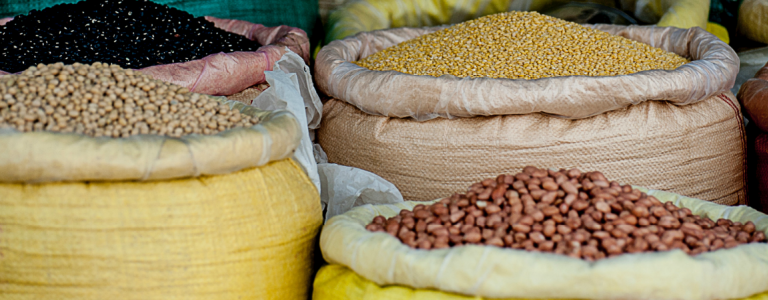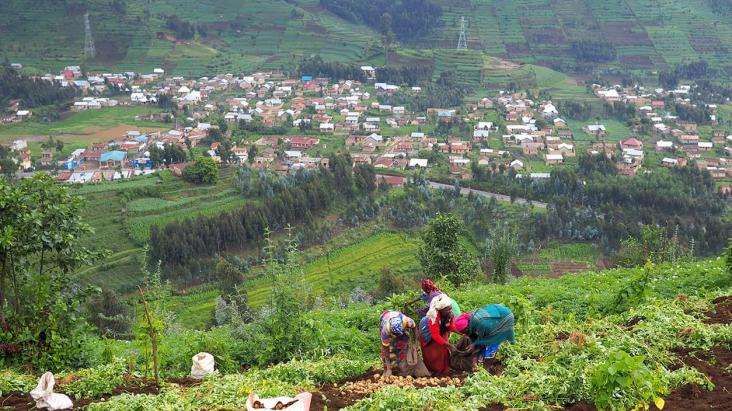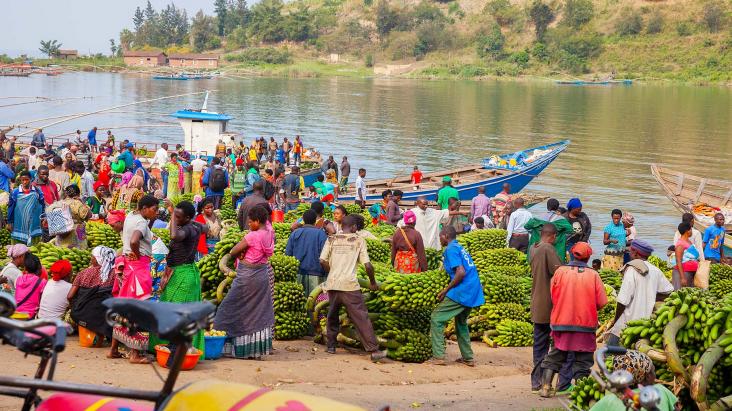State of Sustainability Initiatives
Working toward more transparent and sustainable forms of production, consumption, and trade.
IISD’s State of Sustainability Initiatives (SSI) has been working to advance sustainable and inclusive value chains since 2008. We provide credible and solution-oriented research, dialogue, and strategic advice for decision-makers about voluntary sustainability standards (VSSs) and other supportive initiatives.
Our goal is to help decision-makers use VSSs as needed to support more sustainable production, consumption, and trade. This work includes helping small-scale producers and micro, small, and medium-sized enterprises in developing countries to access markets and receive fair remuneration. Our strategy to achieve this goal has three components:
- Improving the design and practices of VSSs.
- Increasing synergies between VSSs and policy action at the national, regional, and multilateral levels.
- Enhancing the transparency and accountability of value chain actors’ sourcing practices and the terms and conditions they establish with producers.
What are VSSs?
The United Nations Forum on Sustainability Standards defines VSSs as “standards specifying requirements that producers, traders, manufacturers, retailers or service providers may be asked to meet, relating to a wide range of sustainability metrics, including respect for basic human rights, worker health and safety, the environmental impacts of production, community relations, land use planning and others.”
Some VSSs are international in their scope, such as Fairtrade International, GlobalG.A.P., and Rainforest Alliance. Others have a local or regional focus, such as the Indian-based Trustea, Madagascar Organic, or the African Organisation for Standardisation.
Over the last 3 decades, there has been exponential growth in the demand and supply of standard-compliant products, which has led to the proliferation of VSSs. The diversity of these initiatives makes it increasingly challenging for stakeholders to stay informed on their utility, performance, and best practices.
Our work
We work with VSSs and value chain actors, producer and consumer groups, policy officials from governments in producing and consuming countries, regional blocs, intergovernmental organizations, and multilateral entities.
We conduct research, provide tailored services such as capacity building and technical assistance, and convene and facilitate dialogues.
Through our work, we strive to improve the effectiveness of VSSs and raise awareness about their potential to foster sustainable production, consumption, and trade among all stakeholders—from smallholder farmers, end consumers, and large manufacturers to government officials and financial services providers.
Our history
The SSI project is the result of several multistakeholder meetings (2003–2006) on sustainable commodities production and trade, facilitated by the United Nations Conference on Trade and Development and IISD, under the auspices of the Sustainable Commodity Initiative (SCI).
Building on requests for improved information on the performance and market opportunities associated with voluntary sustainability initiatives, the SCI, through a special partnership with the International Institute for Environment and Development (IIED) and AidEnvironment, launched the SSI project in 2008. IISD leads and manages the SSI.
Publications
Measures to Enhance Forest Conservation and Reduce Deforestation
This report outlines and compares various policy measures that Costa Rica, Gabon, Indonesia, Peru, and Rwanda have put in place to address deforestation.
Voluntary Standards and Initiatives for Carbon Management
These two reports unpack the complex landscape of voluntary standards and initiatives for carbon management to help private sector actors reach net-zero emissions.
Global Market Report: Tea prices and sustainability
This report explores recent market trends in the tea sector and explains why we need to get better at recognizing the social and environmental costs of tea production.
Producer Inclusion in Voluntary Sustainability Standard Governance
This report analyzes the extent to which producers are included in the governance of agricultural standards and recommends ways for standard-setting organizations to give producers opportunities to help steer their course.
Webinars
Sustainability Standards and Commodity Prices: How to better support farmers' livelihoods
This webinar explored how standards can better support farmers to get higher prices and incomes and use more sustainable practices amid disruptions in international commodity prices.
Training Workshop on Promoting Agricultural Cooperatives in Cambodia: The role of voluntary sustainability standards and responsible contract farming
This workshop provided training and guidance on how various policy and legal tools can support agricultural cooperatives in Cambodia and address some of the challenges they face.
South-South Trade and Voluntary Sustainability Standards: Challenges and opportunities
Webinar exploring new research on how sustainability standards can promote trade relationships that protect the environment and improve farmers’ livelihoods in developing countries.
Standards and the Sustainable Development Goals: Leveraging sustainability standards for reporting on SDG progress
This event launched a new report examining how governments can work with sustainability standards to advance the SDGs and better track and report on their progress toward achieving them.
Project team

Cristina Larrea
Lead II, Sustainability Standards

Steffany Bermúdez
Policy Advisor I

Sara Elder
Senior Policy Advisor, Standards Workstream

Erika Luna
Junior Policy Analyst

Sally Millett
Communications Officer

Florencia Sarmiento
Policy Analyst

Aishwarya Tripathi
Communications Assistant

Vivek Voora
Senior Associate
Latest
You might also be interested in
Trade and Climate Change
IISD project on trade and climate change
Trade, Environment and Climate
The trade and environment nexus is a dynamic intersection for IISD where trade policy solutions are explored as a way to help tackle environmental challenges, including climate change, deforestation, marine plastic waste, biodiversity loss, and overexploitation of marine resources.
Sustainable Food Systems in Canada
In 2021, a team of IISD experts completed an internal exercise that sought to map out a path for sustainable food systems in Canada.
IISD Next: Campus Workshop Series on Sustainability
We've joined forces with young leaders to create clear, credible resources that directly confront the realities of our present and our future.



